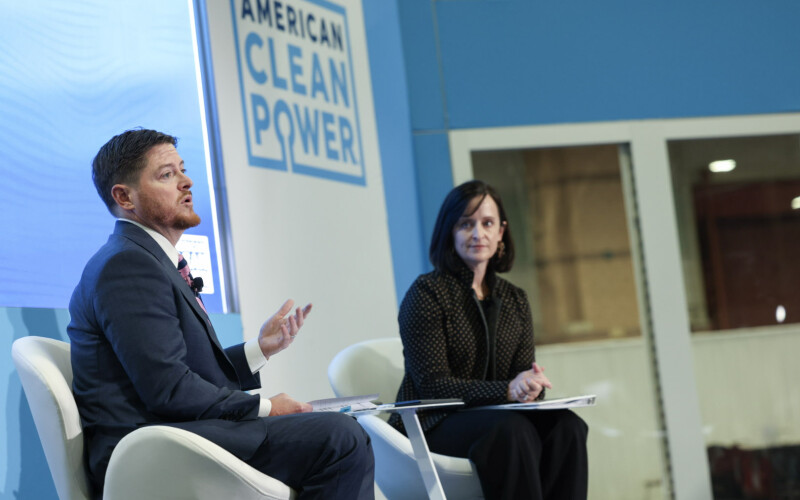A new memorandum of understanding between the Bureau of Ocean Energy Management and Department of Defense pledges early consultations and collaboration on planning offshore wind energy areas.
"BOEM is dedicated to establishing a strong offshore wind industry that supports communities and co-exists with other ocean uses,” BOEM Director Elizabeth Klein said Oct. 29, after she and Brendan Owens, the assistant secretary of Defense for energy, installations, and environment signed the agreement at the Offshore WINDPOWER Conference in Atlantic City, N.J.
“Our collaboration with the Department of Defense is crucial to ensure offshore wind development is carried out efficiently and sustainably, while minimizing impacts to military operations,” said Klein.
Building wind turbine arrays poses a host of potential issues with military operations, from radar interference to airspace restrictions. Those challenges can be dense in some regions, such as the Mid-Atlantic off the Virginia capes, heavily used by the Navy and Air Force for training.
With new agreement BOEM and Defense officials seeks to assure that defense readiness considerations will be paramount.
“DoD is committed to working across the U.S. government to accelerate the ongoing clean energy transition, which is critical to ensuring access to reliable and resilient energy sources in order to fulfill our mission,” said DoD’s Owens. “We will continue to work with BOEM and our other interagency partners, to find solutions that enable offshore wind development while ensuring long-term compatibility with testing, training, and operations critical to our military readiness.”
- Find mutual solutions that support renewable energy in a manner compatible with essential military operations.
- Collaborate as early as possible in the offshore wind leasing process.
- Regularly communicate and exchange information at the staff and leadership levels.
- Determine what areas should be deferred from leasing to enable the performance of DOD activities on the OCS.




